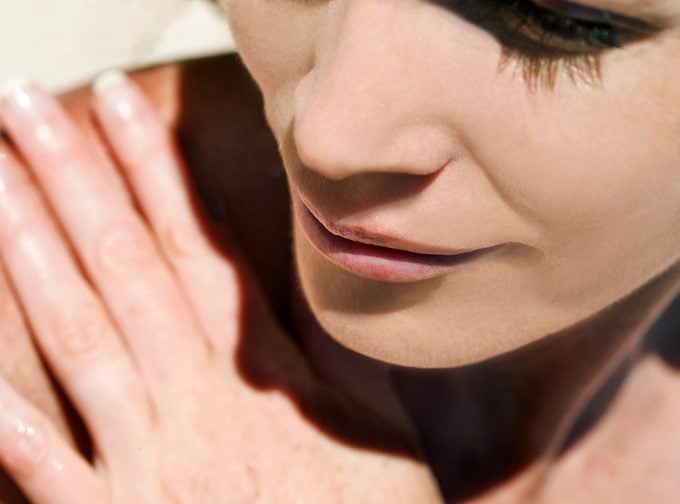The $10 Trick That Could Curb Sun-Related Herpes Outbreaks
Updated: Mar. 30, 2022
Greater sun exposure can make you more vulnerable to getting herpes, but here's a simple way to curb a potential outbreak
Our editors and experts handpick every product we feature. We may earn a commission from your purchases.
Spring is just around the corner, and with the warmer weather comes more outdoor activities in the sun. Then, before you know it, it’s summertime. While you probably break out your best sunscreens for your shoulders, arms, and neck—you may want to invest in an additional type to help keep herpes outbreaks, also known as cold sores, at bay. According to the World Health Organization, 50 percent of people under age 50 have the cold sore virus.
Once you’ve had an episode of herpes infection, the virus lies dormant in nerve cells in your skin and may remerge as another cold sore in the same place as before, according to the U.S. National Library of Medicine. Recurrence often comes from sun exposure. This means time spent outdoors, such as going to the beach, may cause new sores to pop up.
“Sun exposure is a global immune suppressant,” explains board-certified dermatologist S. Manjula Jegasothy, MD. “UV radiation suppresses many aspects of our immune system, including the portion that fights viruses. That is why sun exposure makes us more susceptible to herpes outbreaks and cold sores. Lip and mouth skin—also our genital areas—are particularly delicate because they do not have a top layer of dead skin cells called the stratum corneum and are therefore more susceptible to sexually transmitted infections and viruses such as the herpes virus.”

The solution, says Dr. Jegasothy, is to apply lip balms with built-in sunscreen before heading outdoors, and remembering to reapply every hour or so. Aside from curbing potential viral outbreaks, you’ll get the added benefits of reduced photo-aging, sunburns, and general sun damage. Plus, you can buy them anywhere for $10 or less. Here’s what you can use to get rid of a cold sore.
If it’s too late for you to apply sunscreen and you’re already mid-herpes outbreak, there are still solutions.
“The best treatment for any type of herpes virus infection, including oral cold sores, is a fairly high dose of an oral antiviral medication,” according to Dr. Jegasothy. If you don’t have access to any prescription agents, Abreva, which is a widely marketed antiviral medication that you can find in any drugstore, is a good treatment as well. “Abreva’s active ingredient is an alcohol-based wax, which is good at incorporating itself into the lip cell membrane and preventing the skin cells from interacting with the virus, therefore, theoretically preventing the virus from reproducing.”
Dr. Jegasothy stresses the importance of stocking up on a good SPF-inclusive lip balm, like COOLA Liplux SPF 30, no matter what. “Lip balms with sunscreen are great because they are formulated with waxy esters that incorporate themselves into lip tissue at the cellular level and provide broad-spectrum screening against UV radiation and the immune suppression it enacts.”
These are the sunscreen mistakes you may not realize you’re making.


















